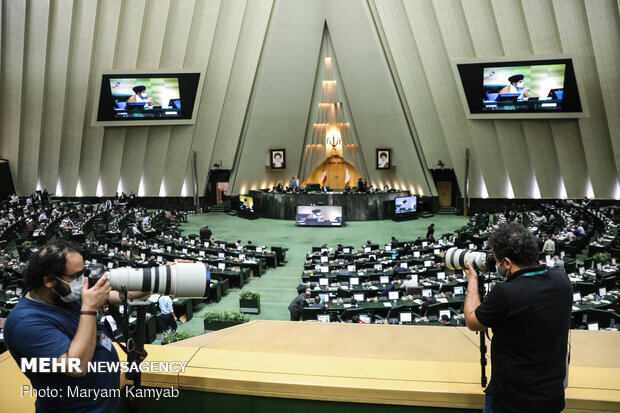Iran not dealing passively with Western countries: MP

TEHRAN – An Iranian legislator has said the parliament’s new strategic action plan to fight the United States’ sanctions demonstrates that Iran is not passive when dealing with Western countries.
“With the new ‘strategic plan’ in place, we are sending a message to the 4+1 group that we no longer deal passively with the West,” Mohammad Ebrahim Rezaee, a member of the Majlis National Security and Foreign Policy Committee, told Mehr on Sunday.
“It is logical to remain as much committed to the 2015 nuclear deal [JCPOA] as the other parties are sticking to their obligations,” he insisted.
He said Iran has exerted every effort in recent years to fulfill its obligations under the nuclear deal. “However, the other side almost showed no obligation to the pact, and we saw that the Americans withdrew from the deal.”
Rezaee said that the strategic action plan emphasizes the resistance strategy of the Islamic Republic of Iran, “and our message is that we are standing firmly on our position no matter who takes office after the U.S. presidential election.”
“Besides, we will continue our path of resistance and will never fall for any miscalculations in this regard,” he stressed.
The MP said announced the details of the plan will be publicized after finalization.
Earlier in November, the Iranian parliament put forward a bill on “strategic action” for lifting the sanctions after the failure of the JCPOA’s European parties to fulfill Tehran’s interests under the nuclear deal and the escalation of American sanctions and hostile measures.
The Iranian lawmakers have agreed to discuss the ratification of the bill entitled “the strategic measure for the removal of sanctions.”
The bill has been proposed after a phased reduction in Iran’s commitments to the JCPOA and the Iranian president’s warning to the E3 about their support for the constant intensification of the cruel American sanctions against Tehran.
The lawmakers have also cited the American assassination of top Iranian commander Lieutenant General Qassem Soleimani, acts of sabotage in Iran’s Natanz nuclear site, the U.S.’s illegal attempts to reinstate the UN sanctions on Iran, and Washington’s plots to disrupt foreign cooperation with Iran.
According to the 9-article bill, the Atomic Energy Organization of Iran will be required to produce and store at least 120 kilograms of enriched uranium with 20 percent purity level at the Fordow nuclear facility every year, and to fulfill the country’s peaceful industrial demands with uranium enriched above 20%.
Based on the motion, if the European parties to the JCPOA start observing their obligations within three months following the approval of the law, the Iranian administration should submit a proposal to the parliament on Iran's reciprocal measures for restoring full implementation of its JCPOA obligations.
Back in September, Foreign Minister Mohammad Javad Zarif said Iran suffered billions of dollars in damages because U.S. President Donald Trump did not like his predecessor Barack Obama.
“Billions upon billions of dollars of damage they have inflicted upon Iran just because somebody didn’t like the previous president of the United States,” Zarif told Fareed Zakaria at a virtual event sponsored by the Council on Foreign Relations.
He was making a reference to Trump’s motivation to withdraw from the Iran nuclear deal, which many believe was due to his hatred toward Obama, under whom the deal was clinched.
MH/PA
Leave a Comment